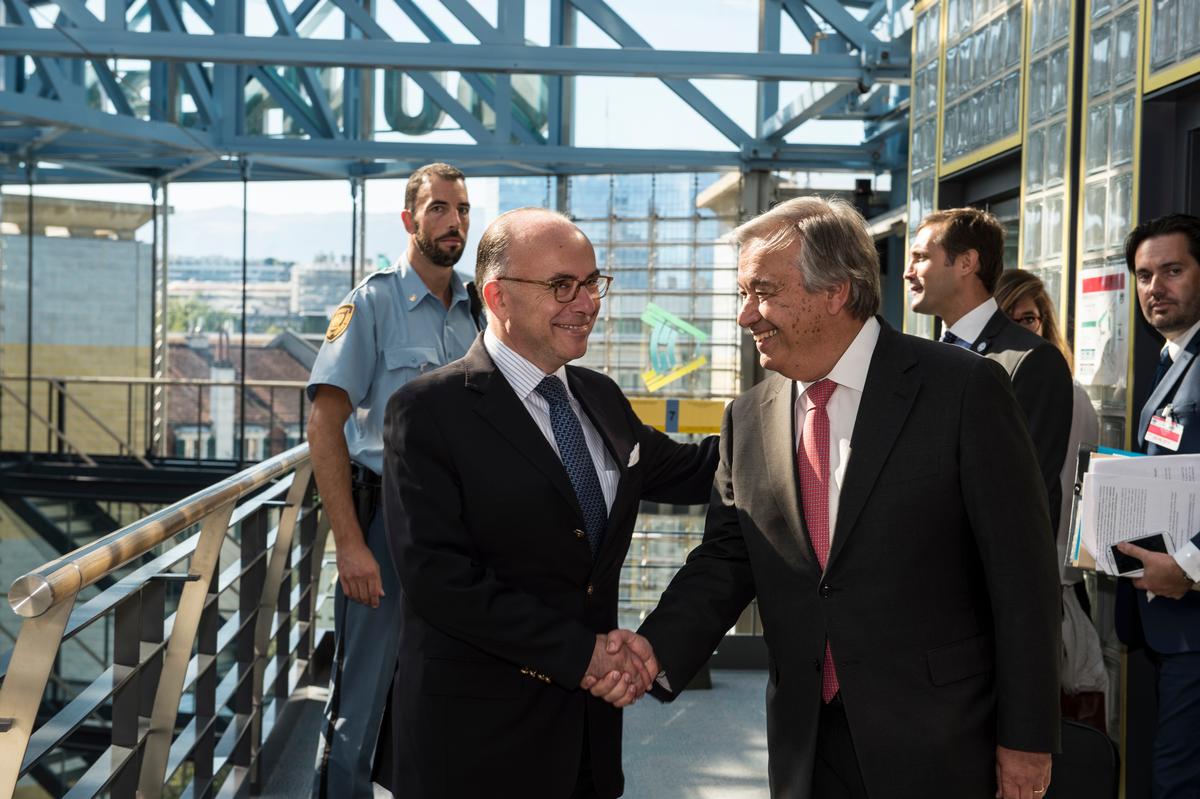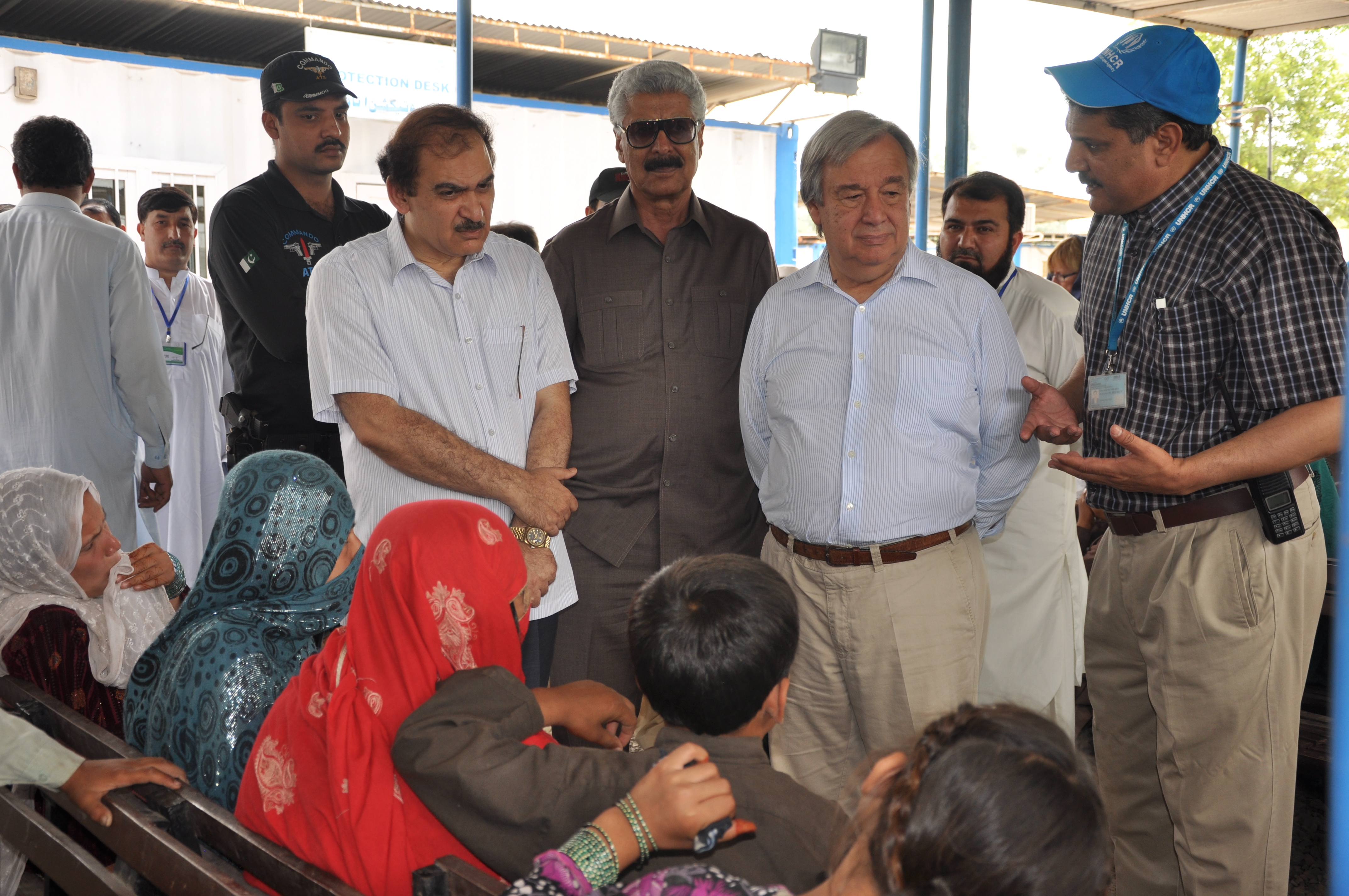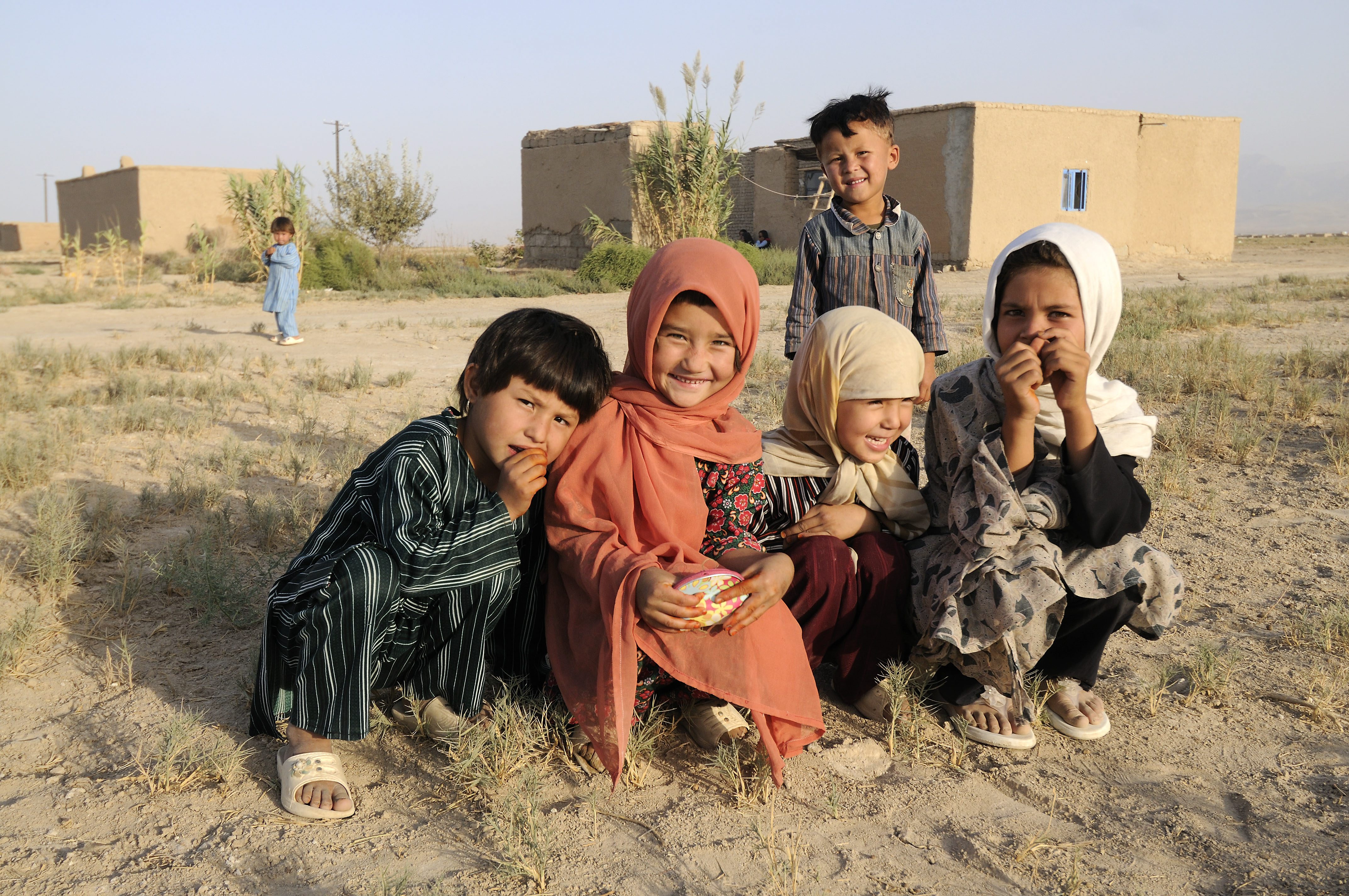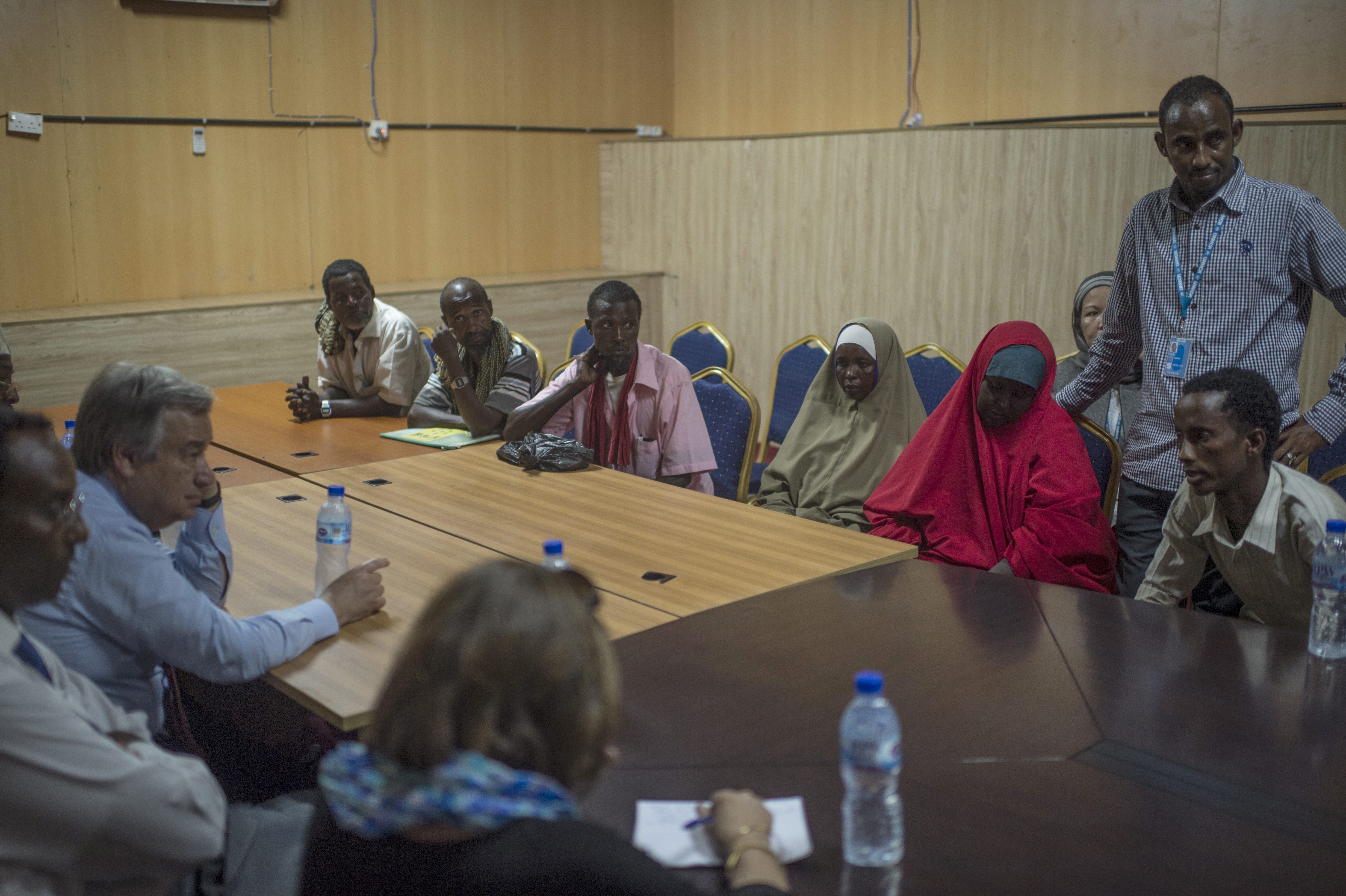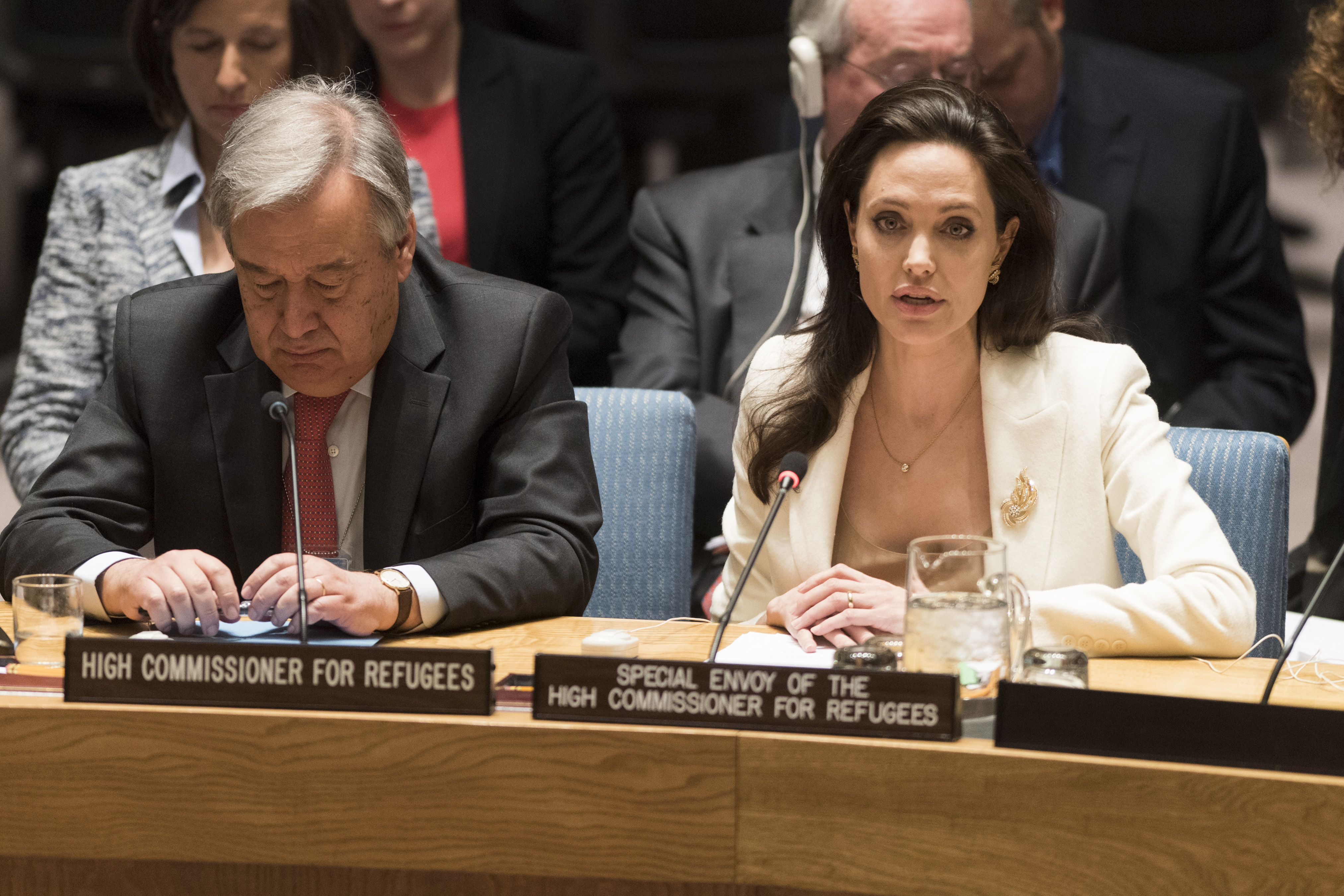High Commissioner Guterres warns of huge risk for conflict again in DRC
High Commissioner Guterres warns of huge risk for conflict again in DRC

KINSHASA, Feb. 27 (UNHCR) - Warning that there is "a huge risk for conflict to rise again," UN High Commissioner for Refugees António Guterres has called on the international community to provide greater support to the Democratic Republic of the Congo's (DRC) transition to full democracy for the first time in 45 years.
Guterres was speaking Sunday in Kinshasa, capital of the huge and troubled DRC, on the first day of his visit to the Great Lakes region with the heads of two of the UN's other large humanitarian agencies, James Morris of the World Food Programme, WFP, and Ann M. Veneman of UNICEF, the children's fund.
"The scale of the problem, the complexity of the problem, and the nature of the problem [in the DRC] are such that all our resources combined together won't easily solve it," Guterres told ambassadors from donor countries. "We are morally obliged to act together," he added. Separately, UN agencies cannot do much. Together we can really make a difference."
He said the unprecedented mission of the three agency heads showed their "total solidarity with this area and its people" as well as the commitment of UN agencies to co-operate more closely with each other.
On Sunday morning, the three visited a feeding centre in a Kinshasa slum where malnutrition is a permanent problem, and then chatted with children in a programme for street children, many of whom have been mistreated at home because they are suspected of being sorcerers.
The street boys performed a short play in which aid workers try to make peace between two armed men vying for the presidency of their country. They showed UNHCR donating plastic sheeting to a victim of fighting, ("Très bien," applauded Guterres), WFP handing over food, and UNICEF giving textbooks to a child.
"The war is finished, the transition [to democracy] is finished. Forward to the elections," a young boy proclaimed at the end of the play.
It was a theme echoed by Guterres, who is on his first visit to the Great Lakes region.
"There is a need for a deep commitment to support new Congolese institutions and the Congolese development process in the next few years," he said, "because it will be key to stability in this part of Africa."
He spoke as DRC heads for national elections scheduled for June, following a successful, peaceful constitutional referendum. Citizens who voted in the referendum, Guterres observed, "clearly said 'we want war to stop, we want one country, one democratic government, one army, all acting in a civilized way.' It is now up to politicians to deliver and up to the international community to support them."
DRC has been the site of the most lethal fighting in the world since World War II. A six-year war cost 4 million lives, and medical experts say a further 1,200 are still dying needlessly every day. More than 3.4 million have been displaced from their homes (of whom 411,000 are refugees in neighbouring countries), and 17 million don't have a steady supply of food.
Guterres and his fellow high-level visitors lamented that this tragedy is unfolding out of the glare of television cameras, and out of the consciousness of the developed world. All three UN agencies say they are dramatically under-funded compared to needs, in the three Great Lakes countries they will visit on this trip.
On Monday morning, the visitors met DRC President Joseph Kabila for 45 minutes and discussed the need for the international community to help DRC protect its own citizens. Later in the morning they were scheduled to travel to eastern DRC where on Tuesday they plan to meet refugees returning home from camps in Tanzania with UNHCR's help. Over 57,000 Congolese refugees have returned home since October 2004, of whom 22,000 were assisted by the UN refugee agency.

The three agency heads then travel on to Rwanda and Burundi to underline the need to find a regional solution to conflict and displacement in the Great Lakes.
"You cannot solve the political problems of Congo if at the same time you do not address the problems of Rwandans and Burundians," the High Commissioner said.
By Kitty McKinsey in Kinshasa, Democratic Republic of the Congo


